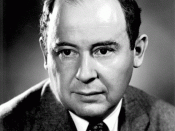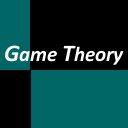Game Theory is mathematical analysis of competitive situations to identify choices that will lead to a desired outcome. Game theory began in the study of amusements, but it also applies to sociology, economics, and political and military science. The French mathematician ÃÂmile Borel, who wrote several papers on games of chance and theories of play, first explored aspects of game theory. Furthermore, Hungarian-American mathematician John von Neumann, in a series of papers in the 1920s and 1930s, established the mathematical framework for all game theory. During World War II (1939-1945), military strategists drew on game theory. Game theory was later developed by social scientists. Despite such empirically related interests, however, it is essentially a product of mathematicians.
Basic Concepts
Rules control the conditions under which the game begins, the possible legal "moves" at each stage of play, the total number of moves, and the terms of the outcome, or payoff, at the game's end.
In game theory, a move is the way in which the game progresses from one stage to another, beginning with an initial state of the game through the final move. Moves may alternate between players in a specified fashion or may occur simultaneously. Moves are made either by personal choice or by chance; in the latter case, an object such as a die, instruction card, or number wheel determines a given move, the probabilities of which are calculable.
Payoff, or outcome, is a game-theory term referring to what happens at the end of a game. In such games as chess or checkers, payoff may be as simple as declaring a winner or a loser. In poker or other gambling situations the payoff is usually money; its amount is predetermined by antes and bets amassed during the course of play, by percentages or by other fixed...


